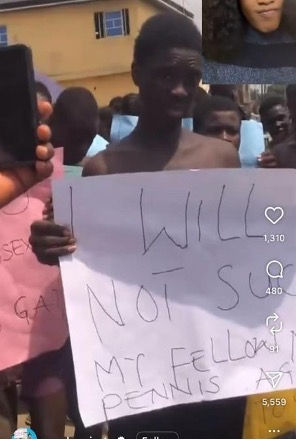JUSUN STRIKE AND ITS EFFECTS ON THE VULNERABLE GROUPS
- Rommy Mom

- Jun 18, 2021
- 4 min read
BACKGROUND
Courts throughout Nigeria was shut down on the 6th of April 2021 occasioned by a strike action embarked by the Judiciary Staff Union of Nigeria (JUSUN). Over the years, the third arm of government (Judiciary) in Nigeria have been demanding for autonomy which is recognized by the 1999 Nigerian Constitution (as amended). According to Section 121 (3) of the 1999 Nigerian Constitution:
“Any amount standing to the credit of
House of Assembly of the state; and
Judiciary;
In the consolidated Revenue Fund of the state shall be paid directly to the said bodies irrespective; in the case of the judiciary, such amount shall be paid directly to the heads of the courts concerned.”
Contrary to the provision of the constitution, State Judiciary have solely depended on the State Executive for funding especially in the area of capital projects. This practice is not in ad idem with the provisions of the constitution and the doctrine of separation of power; thereby creating space for abuse of power without cheeks and balances on the part of State Executive.
The essence of the doctrine of separation of power in a democratic setting is to ensure that the three arms of government (Executive, Legislature, Judiciary) function independent of the other making provisions for checks and balances. This doctrine ensures that each of the arm is accountable to the other. When dependency is the other of the day as practiced in states, unbiased accountability cannot be assured just like the aphorism goes “He who pay the piper dictates the tune”. Regrettably, the lack of financial autonomy on State Judiciary has made it difficult for the Judges at State High Courts to be independent and impartial, especially in cases where the Executive has a vested interest. Therefore, the judiciary being the hope of the common man needs to be financially independent to guarantee a high level of impartiality.
The Federal High Court in Nigeria’s capital, Abuja, had on the 13th of January 2014, held that financial autonomy for the judiciary is a constitutional provision that must be complied with by the executive branch of government. The President of the Federal Republic of Nigeria, Muhammadu Buhari signed into law Executive Order No.10 of 2020, granting financial autonomy to the legislature and judiciary across the 36 states of the federation, requiring all states to include the allocations of both the legislature and the judiciary in the first-line charge of their budget; and also ordered the Accountant-General of the Federation to deduct from source amount due to the state legislatures and judiciaries from the monthly allocation to each state that refuses to grant such autonomy. Regardless of the above decision of the federal high court and the Executive Order signed into law, the judiciary is yet to obtain the status of independent especially as it relates to finance.
Since the commencement of the strike members of JUSUN and the Governors Forum have had series of meeting deliberating on the way forward
ITS IMPLICATION ON THE VULNERABLE GROUPS
It has been 61days (2 months) and the doors of the courts are still shutdown in protest for State Judiciary financial autonomy thereby obstructing access to justice for vulnerable and marginalized groups; just as the African proverb goes “when two elephants fight it is the grass that gets trampled”. These are the various implication of the strike on the vulnerable groups:
Survivors/victims of SGBV: Sexual and Gender Based Violence cases which should be treated with a sense of urgency are left unattended to as a result of the strike. With the knowledge of this fact survivors of SGBV finds it difficult to report cases of violation impeding on the efforts that have been put in place towards eliminating SGBV in Nigeria. Perpetrators are often arrested and release within two days according to the provisions of the constitution of the Federal Republic of Nigeria. These development have occasioned greater loss, as perpetrators returns to the same space with the survivor.
Detainees: At the moment pre-trial inmates in detention who from the provisions of the constitution are presumed innocent until otherwise is proven are still locked up without access to the court to seek for bail. Those who were granted bail before the strike but are yet to process same are equally locked up. These categories of persons are now languishing in custody pending the call off of the strike action leading to prison congestion in this COVID-19 era. There are equally inmates awaiting trail who are at the correctional centers whose trials have been delayed and jail term extended.
The strike action has also made the enforcement of fundamental rights unattainable. There is a total black out (absence) of justice in the country and something needs to be done as quickly as possible. Crime, is equal on the increase with no open court to prosecute the perpetrators. Therefore we call on the parties responsible to look at the plight of the citizens and reach a common ground towards the re-opening of the courts in Nigeria.








Comments